PsychNewsDaily Publishers
100 Summit Drive
Burlington, MA, 01803
Telephone: (320) 349-2484
PsychNewsDaily Publishers
100 Summit Drive
Burlington, MA, 01803
Telephone: (320) 349-2484
Minnesota offers no-cost mental health support through community centers, state programs, crisis hotlines, and nonprofits, ensuring accessible care regardless of financial circumstances.
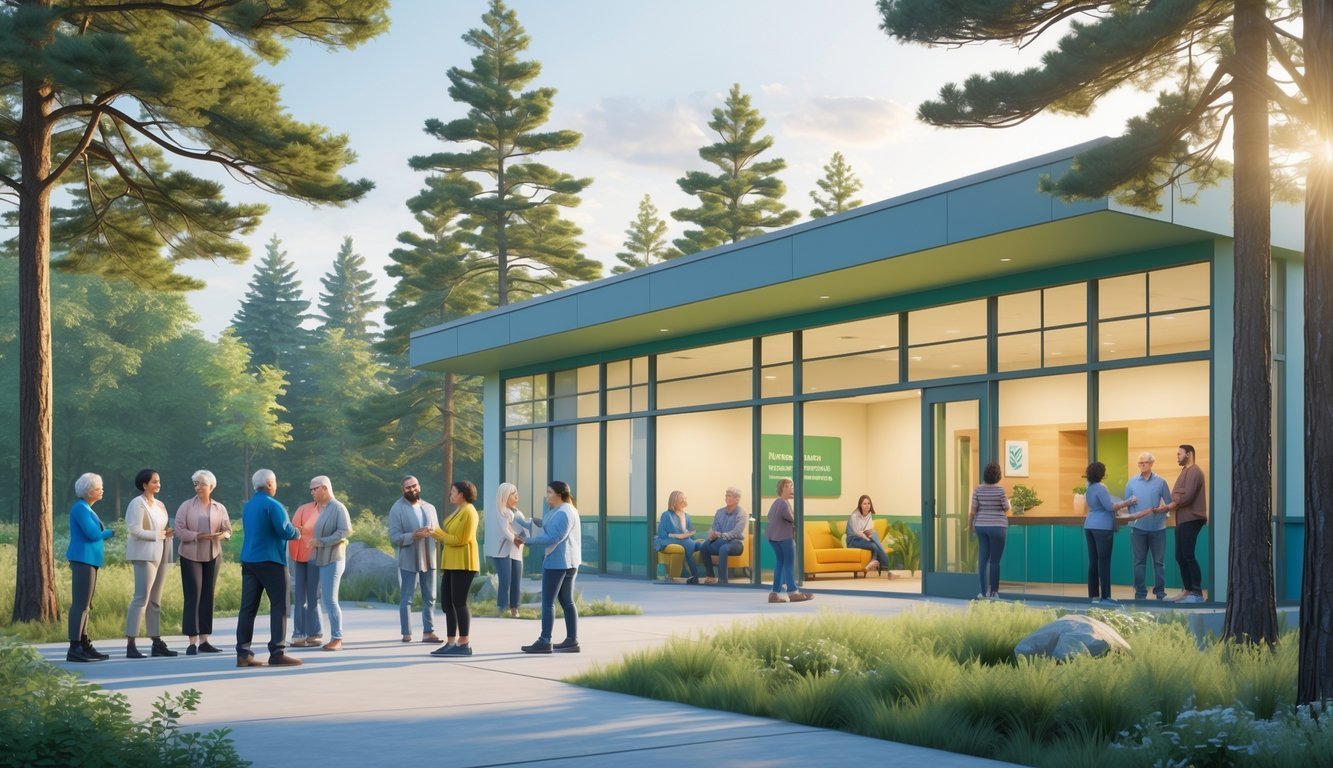
Finding mental health support shouldn’t depend on your wallet. Minnesota actually has a bunch of no-cost mental health services through state programs, community groups, and crisis networks, so you can get help no matter your financial situation.
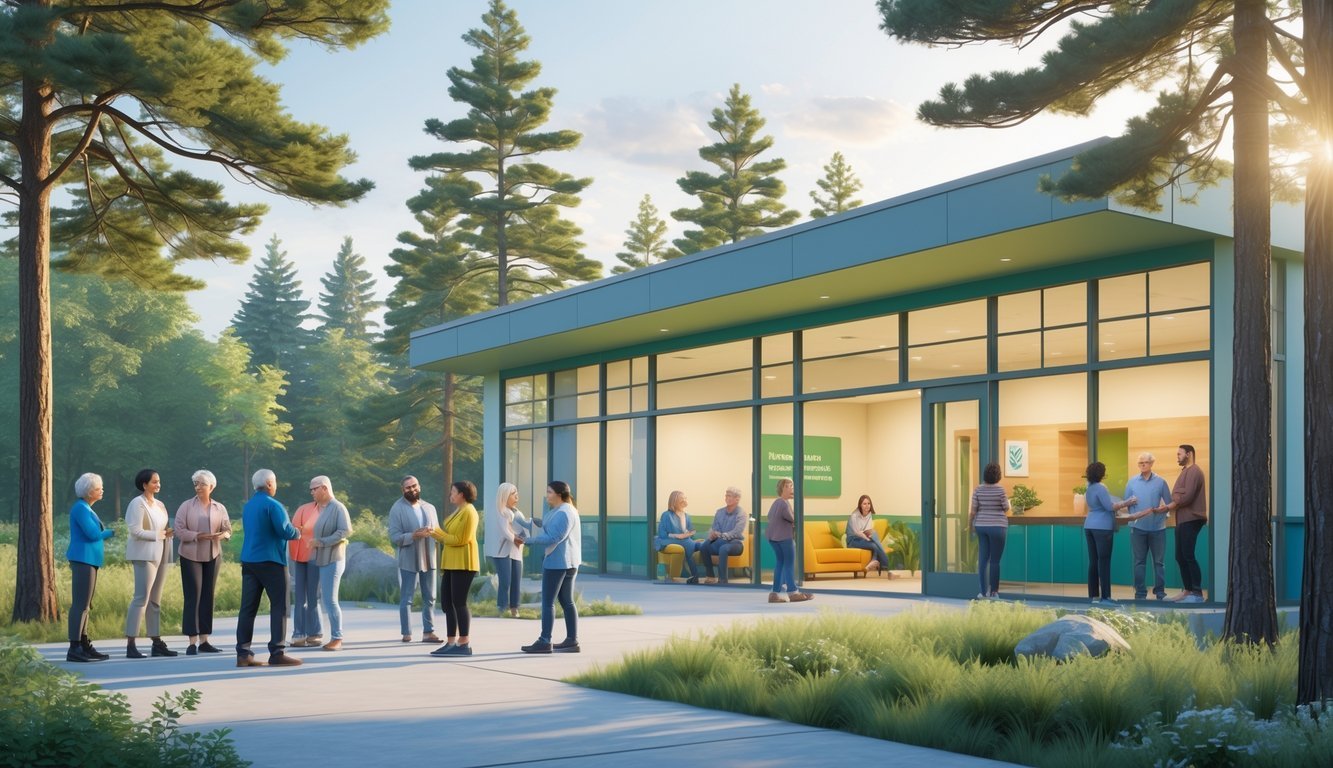
You’ll find free mental health services in Minnesota through crisis hotlines, local mental health centers, mobile teams, and programs for all sorts of needs. These options cover everything from urgent crisis help to ongoing therapy and support groups.
If you’re in a mental health crisis or just want regular counseling, knowing what’s out there and how to get started can really make a difference. From 24/7 mobile crisis teams to drop-in centers and special programs, Minnesota really tries to open up different paths to care without cost getting in the way.
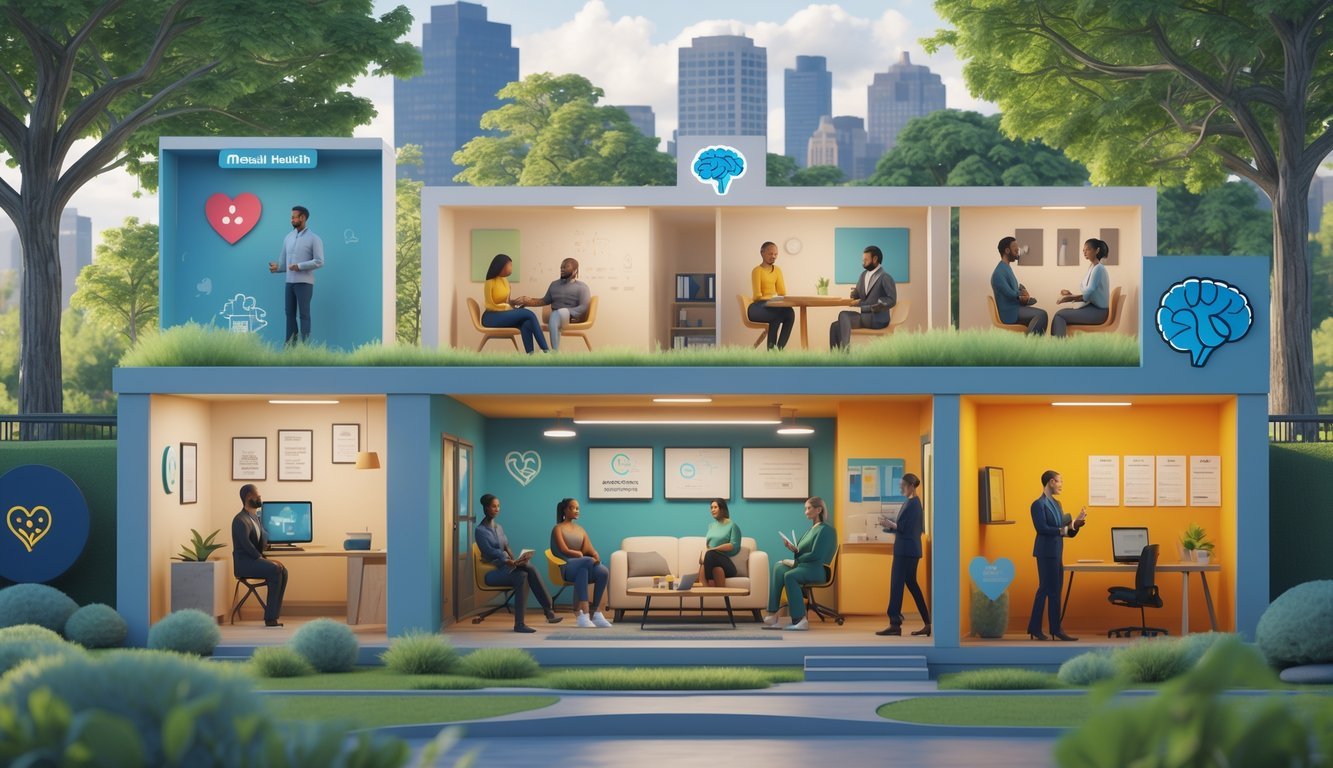
Minnesota has several kinds of free mental health help through community centers, government programs, and nonprofits. You’ll see support for crisis moments, longer-term counseling, and peer groups.
Community mental health centers offer drop-in help and peer support for adults dealing with serious mental illness. Mental Health Resources in Hennepin County gives you a place to connect with peers and counselors.
They can help you find safe, affordable housing or keep the place you have. If you’re looking for work, they’ll help with applications and staying employed.
Services include:
The centers also teach independent living skills. You can join groups that build social support and help with recovery.
Minnesota’s state programs offer a wide range of mental health services. Direct Care and Treatment services provide inpatient care, crisis services, and treatment for substance use issues.
County programs offer crisis help too. Carver County has 24/7 mobile and phone crisis response at (952) 442-7601, open to all residents.
Medicaid and MinnesotaCare cover mental health care, so you can get help even if you’re not able to pay.
Government services include:
The state also runs specialized dental clinics and sex offender treatment programs through Direct Care and Treatment.
Nonprofits offer free mental health screenings and counseling. University of Minnesota students can get free screenings at Boynton Mental Health & Counseling.
Community-University Health Care Center serves people from all backgrounds and has been around for over 50 years. You can get medical, dental, and mental health care all in one place.
Some nonprofits focus on specific support, like domestic abuse advocacy and legal help alongside mental health care.
Nonprofit services include:
United Way 2-1-1 gives free info about health and human services. You can call them any time, day or night, for help finding resources.
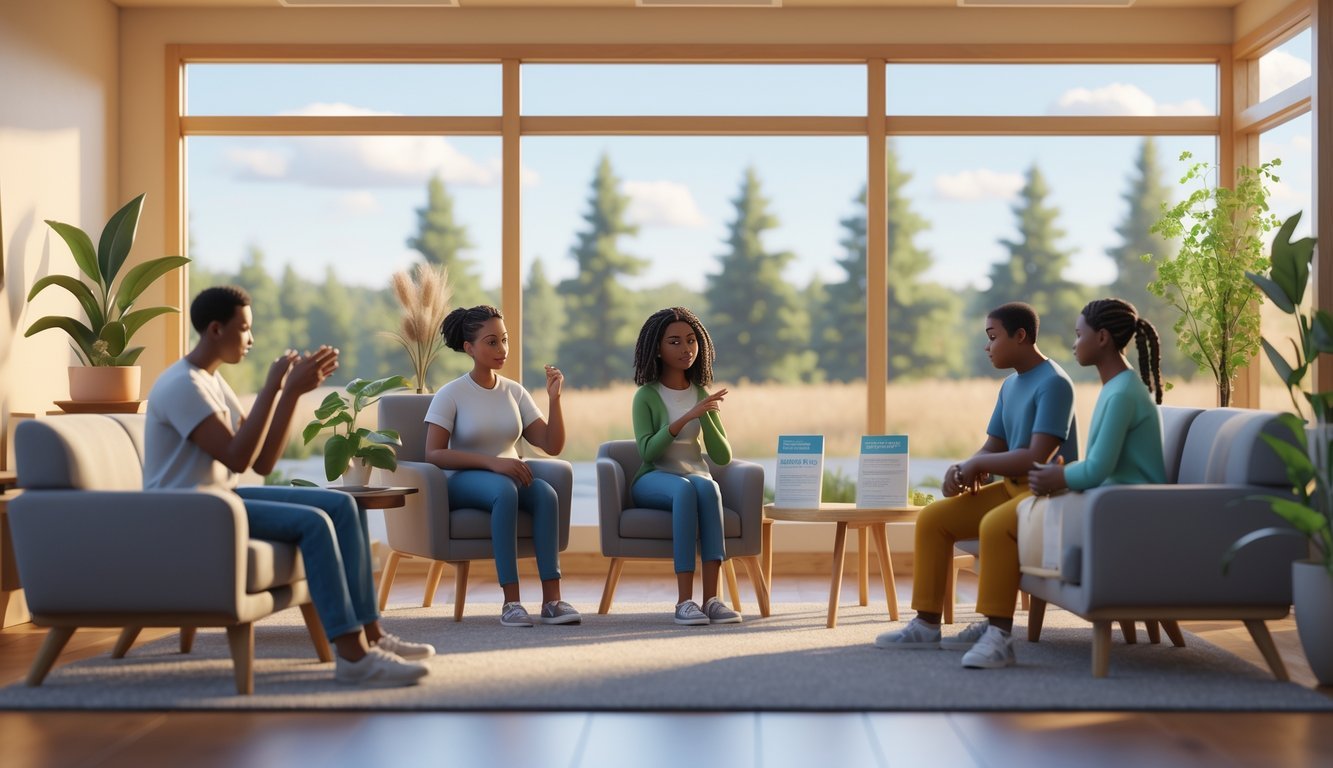
Minnesota has several kinds of crisis support, including 24/7 hotlines, mobile teams, and walk-in urgent care. These services give quick help in emergencies and connect you with longer-term care.
The 988 Suicide & Crisis Lifeline is open 24/7 and free. You can call or text 988 to talk to trained counselors who help during crises and prevent suicide.
The Crisis Text Line lets you text HOME to 741741 for immediate support. Crisis counselors help with panic attacks, suicidal thoughts, or any mental health emergency.
Carver County runs 24/7 mobile and phone crisis response at (952) 442-7601. Adults and kids in the county can use this service.
The Disaster Distress Helpline offers crisis counseling all year for people feeling overwhelmed by disasters. They provide help in multiple languages and stay open 24/7 for everyone in the U.S.
Mobile crisis teams come to you when you’re having a mental health emergency. These teams have trained mental health pros who can check in on your situation and offer support right away.
Carver County’s mobile crisis services respond to calls throughout the county. The teams sometimes work with law enforcement or emergency services if needed.
Mobile teams help calm things down at home, work, or school. They also help you get connected to ongoing mental health services after the crisis.
These services don’t usually require insurance or pre-approval, and they’re free for emergencies.
Walk-in crisis centers give immediate psychiatric care without needing an appointment. Adult behavioral health crisis centers offer short-term help and can point you to long-term care.
You’ll usually find psychiatrists, nurse practitioners, social workers, and peer advocates at these centers. They help with medication, safety plans, and stabilizing crises.
Hennepin County has community clinics that offer behavioral health services for people with complex needs.
Hospital emergency rooms also provide crisis mental health services 24/7. They can do psychiatric evaluations and keep people safe if they’re at immediate risk.
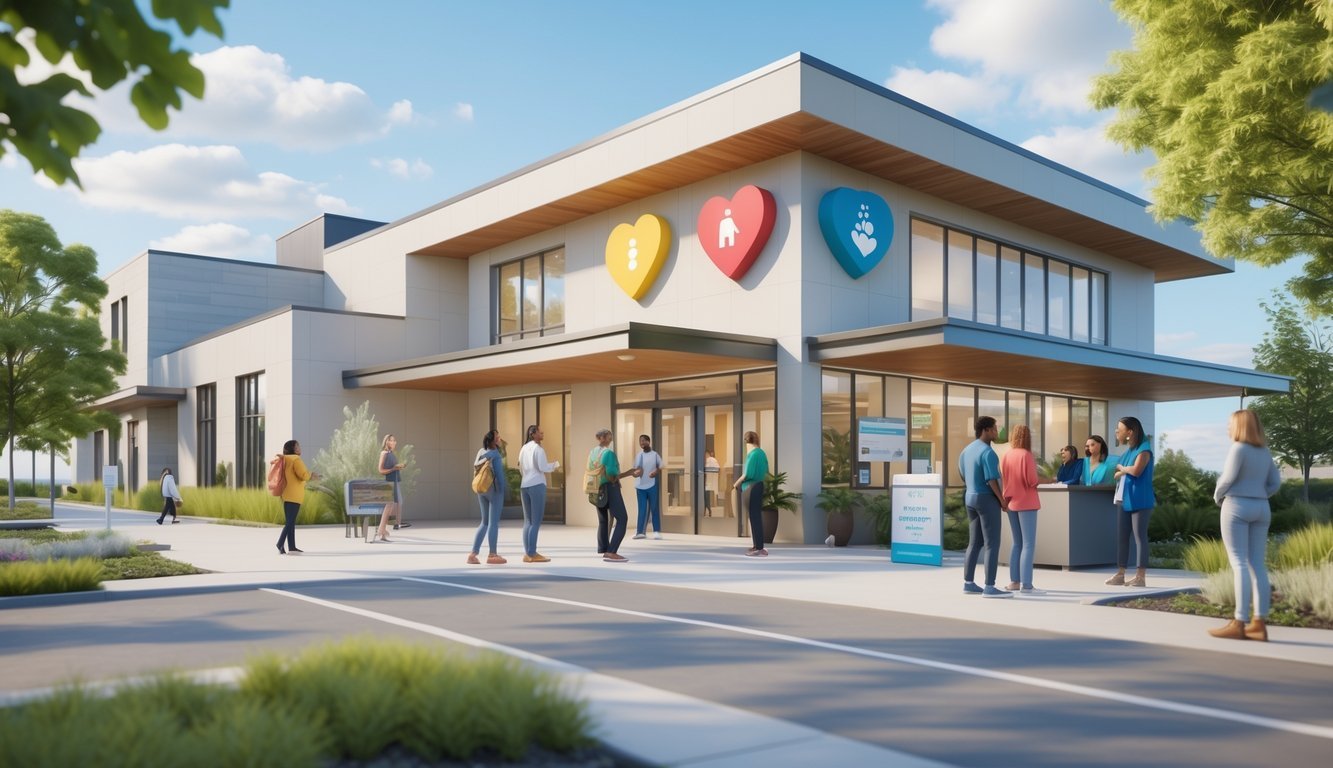
Getting free mental health care in Minnesota mostly comes down to knowing where to look and what steps to take. Most services have easy application processes and support different languages.
Start by calling United Way 2-1-1 for free info about mental health services near you. They’re open 24/7.
You can also reach out to the National Alliance on Mental Illness Minnesota chapter for referrals and info about local providers with free or low-cost care.
Depending on your needs, here are some options:
Crisis situations:
Ongoing support:
Most free mental health services in Minnesota don’t depend on your ability to pay. Carver County services make it clear they help no matter what you can afford.
For ongoing care, you might need to show:
Medicaid and MinnesotaCare help pay for mental health care for people with different incomes.
The application is usually quick. Staff can help you fill out forms during your first visit.
Mental health providers in Minnesota offer language support for people who don’t speak English. The Disaster Distress Helpline provides crisis support in many languages, and you can text “Hablamos” to 66746 for Spanish help.
Most places must offer free interpreters, including:
Ask for an interpreter when you make your appointment. It’s better not to bring family members for interpreting sensitive info.
Lots of facilities also have accommodations for people with disabilities. It’s a good idea to call ahead and talk about what you need.
Minnesota has lots of community programs to help people keep their mental health on track. You’ll find peer support groups, family programs, and activities that focus on long-term wellness.
Support groups bring you together with people who get what you’re going through. The Aurora Center offers welcoming spaces where people share and support each other in group discussions.
Many programs have peer-led activities where folks with similar mental health experiences run the meetings. Topics often include coping skills, healing, and handling relationships.
Drop-in centers let you get support without an appointment. Mental Health Resources has community spaces where you can talk to peer counselors and join social events.
Peer program benefits:
The National Alliance on Mental Illness runs free local groups across Minnesota, focusing on specific conditions or just general mental health.
Families also need help when supporting someone with mental illness. Education and prevention services provide info about treatment and emotional support to help families understand these challenges.
Training programs teach families how to spot warning signs and respond to crises. Courses also cover better communication and self-care for caregivers.
Family support services include:
Many programs help families build skills for long-term support. You’ll learn how to set healthy boundaries and still provide the help your loved one needs.
Recovery programs help you pick up independent living skills right in your own community. Adult Rehabilitative Mental Health Services work with people so they can practice and regain abilities that mental illness symptoms might have affected.
These programs step in with real support for the day-to-day stuff that can get overwhelming. You might get help with finding a place to live, applying for jobs, or managing health care.
Recovery support areas:
Community programs offer training about mental illness, treatment options, and ways to work toward recovery. You’ll join in on activities that help you meet people and keep you from feeling so alone.
Wellness initiatives focus on helping you keep your progress going. These programs bring together professional advice and peer support, aiming to support real, long-term recovery.